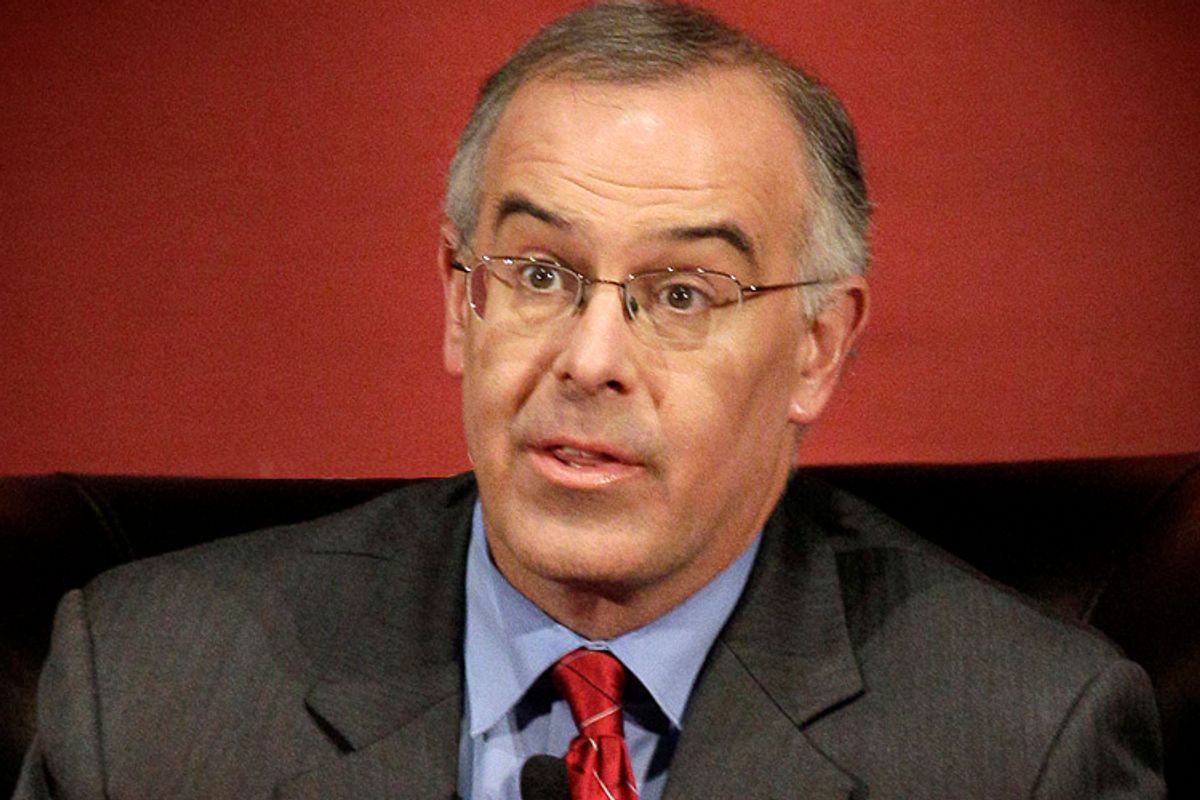There are certain levels of job security. A tenured professorship is nice; very few are dismissed for cause. Then there’s the Supreme Court justice, which is a gig that, irritatingly — if, like me, you scan the actuarial tables whenever Antonin Scalia writes a decision — can last a lifetime. The media, you’d think, is not a realm in which such cushy gigs exist. And for the most part, you’d be right. Editors and reporters are fired all the time.
But the New York Times Op-Ed page seems to exist on a plane different even from the one occupied by the rest of the staff, which is subject to buyouts on, seemingly, an annual basis. The money crunch never seems to touch the stars of the Op-Ed page — and that’s weird, because a lot of them are fiscal black holes.
One exception should be noted: William Kristol. In late 2007, the editorial page’s editor, Andrew Rosenthal, boasted of the paper’s new pickup, and jabbed at liberals who were upset about it. “The idea that The New York Times is giving voice to a guy who is a serious, respected conservative intellectual — and somehow that’s a bad thing,” he told Politico. “How intolerant is that?” Well, the hippies were right to be intolerant; Kristol was inaccurate, careless and dull, which is precisely what you’d expect of the editor of the Weekly Standard. The paper was forced to issue a slew of corrections and Kristol’s contract was not renewed.
But, as I say, he’s the exception. And that’s a problem. Any rule for which William Kristol is the exception probably needs to be revised.
I thought about this as I read this morning’s David Brooks column. And I thought, too, of Brooks’ words from a couple of weeks ago, delivered at the Aspen Ideas Festival. Asked by Katie Couric what working for the Times is like, he said, "I've never attended a meeting at the Times. … We can write about anything. I've been at the Times for over a decade, I've never had a performance review. We can go anywhere we want. And we are just left alone."
This is no joke. Unless something’s changed, Thomas Friedman’s travel expenses are ignored. “Since taking his current post, in 1995, he has never been asked by Sulzberger what he was planning to write, or how high his travel expenses would be,” reported the New Yorker. And the laissez-faire attitude also extends to the editorial process. When I interviewed Maureen Dowd a couple of years ago, she lamented that she literally had no editor.
This is a problem. This freedom is what allows Brooks to write, and file, a column in which he decides that life is binary — it’s either like baseball or soccer.
Baseball is a team sport, but it is basically an accumulation of individual activities. Throwing a strike, hitting a line drive or fielding a grounder is primarily an individual achievement. The team that performs the most individual tasks well will probably win the game.
Soccer is not like that. In soccer, almost no task, except the penalty kick and a few others, is intrinsically individual.
“Most of us spend our days thinking we are playing baseball, but we are really playing soccer,” Brooks continues. “We think we individually choose what career path to take, whom to socialize with, what views to hold.”
Who is we, white man? For example, is “we” the 3.5 million people currently categorized as “long-term unemployed”? Is “we” college grads living in their parents’ basement? These people have no choice.
Brooks is not so much talking to readers as to himself. And that’s grotesque — as is the column’s close:
...soccer is like a 90-minute anxiety dream — one of those frustrating dreams when you’re trying to get somewhere but something is always in the way. This is yet another way soccer is like life.
Well, not David Brooks’ life. The New York Times gave David Brooks absolute freedom to be a middling columnist and has never given him an incentive to be good. Nothing is ever in the way, save for the weekly deadlines.

Shares